Address system of South Africa
- Address system of South Africa
- Recipient Name
- Department or Organization Name
- Street Address or P.O. Box
- Town/City
- Postal Code
- Province
- Country
- Address Example
Address system of South Africa
An addressing system is a structured and standardized method used to identify and locate specific places, individuals, or entities for communication, navigation, and delivery. It typically involves a set of components that, when combined, create a unique address that can be easily understood by postal services, courier companies, navigation systems, and other relevant parties. Addressing systems play a crucial role in ensuring accurate and efficient communication, package delivery, and navigation.
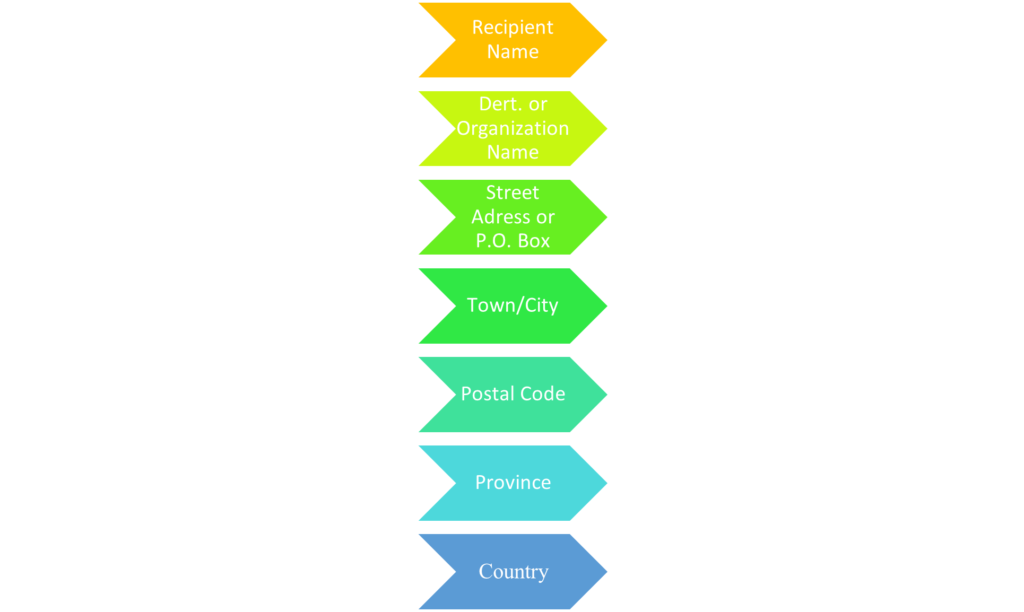
The addressing system consists of many components such as the recipient’s name, department or organization name, street address or P.O. box, town, city, province, postal code, and country.
When writing the official address of an entity in South Africa, you should follow a specific format to ensure clarity and correctness. Here’s how you can structure the official address in headings:
Recipient’s Name: If the address is directed to a specific person within the organization, you can include their name here.
Example: Mr. Steve Smith
Department or Organization Name: The name of the department, organization, or company you are addressing.
Example: Marketing Department
Street Address or P.O. Box: If the entity has a physical street address, include it here. If not, you can use the P.O. Box address
Example: 123 Main Street
City/Town: The city or town where the entity is located.
Example: Cape Town
Postal Code: The postal code for the specific location, if available.
Example: 4001
Province: The province within South Africa where the address is located.
Example: Western Cape
Country: South Africa: Indicate the country in the address to ensure there is no confusion, especially in international correspondence.
Address Example
Putting it all together, here’s an example of a complete official address in South Africa:
- Recipient Name
- Department or Organization Name
- Street Address or P.O. Box
- Town/City
- Postal Code
- Province
- Country
For Instance:
- Mr. Steve Smith
- Marketing Department
- 123 Main Street
- Cape Town
- 4001
- Western Cape
- South Africa
Remember that address formats can vary slightly, and it’s important to accurately follow the conventions to ensure your mail is delivered correctly.
Immigration Status and Benefits
- Your Immigration Status
- Smart ID Card Holder
- Work Visa
- Study Visa
- Tourist Visa
- Asylum
Immigration Benefits
- Education
- Employment opportunities
- Social Integration
- Protection Under law
- Family Sponsorship
Immigration Status
Immigration holds significant importance for South Africa on various fronts. Firstly, it contributes to the country’s economic growth by bringing in skilled labor, entrepreneurs, and investors who create job opportunities and stimulate innovation. Additionally, immigration fosters cultural diversity, enriching South Africa’s social fabric and promoting tolerance and global integration. It plays a pivotal role in addressing demographic imbalances, helping to counteract population aging, and bolstering the workforce.
Furthermore, immigrants often send remittances back to their home countries, contributing to economic development in those regions. However, South Africa must manage immigration effectively, striking a balance between welcoming newcomers and addressing potential challenges such as strain on public services and competition for jobs. Overall, immigration is a vital force in shaping South Africa’s future as a dynamic and diverse nation.
In South Africa, there are various types of immigration statuses available to individuals. Let’s explore some of these:
Smart ID Card Holder: Smart ID card holders in South Africa are individuals who possess the country’s advanced identification card, known as the Smart ID card. These cards represent a significant advancement in South Africa’s identification system, replacing the traditional green barcoded ID book. The Smart ID card incorporates cutting-edge biometric technology, including fingerprint and facial recognition, making it more secure and tamper-proof. It serves as a crucial form of identification for citizens and is required for various official purposes, such as voting, accessing government services, and conducting financial transactions. Moreover, the Smart ID card is an essential tool in the fight against identity theft and fraud. It streamlines administrative processes and enhances security, contributing to a more efficient and trustworthy system of identification and documentation in South Africa.
http://www.dha.gov.za/index.php/id-smart-card/id-smart-card-features
Work Visa: A work visa for immigrants to South Africa is a legal document that allows foreign nationals to live and work in the country for a specified period. This type of visa is essential for individuals seeking employment opportunities in South Africa and is typically granted based on specific criteria, including a valid job offer from a South African employer. Work visas come in various categories, such as Critical Skills Work Visas, General Work Visas, and Intra-Company Transfer Work Visas, each with its own eligibility requirements.
Applicants usually need to provide proof of their qualifications, experience, and medical fitness, and in some cases, they may be required to undergo a skills assessment. Work visas are temporary and are typically issued for a set duration, after which they can be renewed if the individual continues to meet the visa requirements. Overall, work visas are a vital pathway for foreign nationals to contribute to the South African economy and workforce legally.
https://www.ibn.co.za/south-africa/work-visas/
Study Visa: A study visa for immigrants to South Africa is a temporary residence permit that allows foreign nationals to pursue academic or vocational studies in the country. This type of visa is typically granted to individuals who have been accepted by a South African educational institution and wish to enroll in a course or program. To obtain a study visa, applicants must provide proof of acceptance by the institution, demonstrate sufficient financial means to cover tuition fees and living expenses, and show a commitment to returning to their home country upon completion of their studies.
Study visas are usually granted for the duration of the academic program, and they can be extended if the individual wishes to continue their studies. Holders of study visas are expected to abide by the visa conditions, including maintaining a full-time student status and refraining from engaging in unauthorized work. This type of visa provides an opportunity for international students to gain a quality education in South Africa while also contributing to the cultural diversity of the country’s academic institutions.
https://www.ibn.co.za/south-africa/study-visas/
Tourist Visa: A tourist visa for immigrants to South Africa is a temporary travel document that allows foreign nationals to visit the country for leisure, tourism, or short-term purposes. These visas are typically issued for a specific duration, ranging from a few weeks to several months, depending on the traveler’s nationality and the purpose of their visit. Tourist visas are essential for individuals who are not South African citizens or permanent residents and wish to explore the country’s attractions, experience its culture, or visit friends and family. To obtain a tourist visa, applicants usually need to provide proof of their travel itinerary, financial means to support their stay, return flight tickets, and sometimes a letter of invitation if applicable.
Tourists must adhere to the visa conditions and departure dates to avoid any legal issues during their stay in South Africa. Overall, the tourist visa is a crucial document that facilitates the entry of foreign visitors and promotes tourism in South Africa.
https://www.ibn.co.za/south-africa/visitor-and-tourist-visas/
Asylum: Asylum in South Africa is a legal status granted to immigrants who have fled their home countries due to a well-founded fear of persecution based on factors such as their race, religion, nationality, political opinion, or membership in a particular social group. It is an essential humanitarian protection mechanism, allowing those in genuine need to seek safety and refuge within South Africa’s borders. To apply for asylum, individuals must present themselves to the Department of Home Affairs and go through a legal process that assesses their eligibility for refugee status.
Once granted, asylum seekers are allowed to live and work in South Africa while their asylum claims are being processed. While asylum offers a lifeline to those fleeing persecution, it also poses challenges for South Africa, including the strain on resources and potential issues related to fraud and abuse. Effective management of the asylum system is crucial to balancing humanitarian obligations with the country’s broader immigration policies.
http://www.dha.gov.za/index.php/immigration-services/refugee-status-asylum
Immigration benefits
Immigration plays a crucial role in South Africa’s social, economic, and cultural development. Firstly, it contributes significantly to the country’s labor force by bringing in skilled professionals and workers, addressing specific skills shortages, and bolstering various sectors of the economy. This inflow of talent and expertise can enhance productivity, stimulate innovation, and ultimately promote economic growth. Moreover, legal immigration fosters cultural diversity, enriching the nation’s social fabric and promoting cross-cultural understanding and tolerance.
Obtaining immigration status in South Africa offers several significant benefits to immigrants. These include:
Education: Education serves as a pivotal benefit of acquiring immigration status in South Africa for immigrants and their families. When immigrants attain legal residency or citizenship, they gain access to the country’s educational system, which is often of a higher quality and more comprehensive than what might be available in their home countries. This access extends to both primary and secondary education, as well as opportunities for tertiary education. Access to quality education not only equips immigrant children with valuable knowledge and skills but also fosters their social integration and cultural exchange as they interact with South African peers. For adults, it can open doors to better employment prospects and career development. Education, as a benefit of immigration status, not only enriches the lives of immigrants but also contributes to the nation’s workforce and overall socio-economic development.
Employment opportunities: Gaining immigration status in South Africa provides a significant benefit in the form of employment opportunities. Immigrants with legal status are granted the right to work within the country, which opens doors to a broader range of job prospects. This benefit is especially crucial as it allows immigrants to secure stable and lawful employment, improving their economic well-being and contributing positively to the host nation’s workforce. Legal status ensures that immigrants are not vulnerable to exploitation by unscrupulous employers, as they can claim their rights under South African labor laws. It also encourages skilled immigrants to bring their expertise to South Africa, which can drive economic growth and innovation.
Social Integration: Social integration as a benefit of immigration status in South Africa plays a pivotal role in fostering harmony, diversity, and inclusivity within the nation. When immigrants are granted legal status, they are more likely to become active members of the local community, contributing their skills, experiences, and cultural perspectives. This process of social integration allows for a rich exchange of ideas and traditions, enriching South Africa’s cultural landscape. Moreover, it promotes tolerance and understanding among different ethnic and cultural groups, helping to reduce prejudice and discrimination. Socially integrated immigrants are more likely to access education, healthcare, and employment opportunities, which not only benefits them individually but also contributes to the overall growth and prosperity of the country. Ultimately, social integration, facilitated by immigration status, is a two-way street that enhances both the immigrant experience and South Africa’s social cohesion.
Protection under the law: Protection under the law is a fundamental benefit of obtaining immigration status in South Africa for immigrants. When individuals have legal immigration status, they are entitled to the full range of legal rights and protections afforded by South African law. This includes the right to live and work in the country without fear of deportation, as long as they adhere to the conditions of their visa or permit. Immigrants with legal status have legal recourse in case of disputes or violations of their rights, ensuring that they are not subject to exploitation, discrimination, or abuse by employers or other individuals. They can seek assistance from law enforcement agencies, labor authorities, and the judicial system if necessary.
Family sponsorship: Family sponsorship is a valuable benefit associated with immigration status in South Africa. It allows individuals who have obtained legal immigration status, such as permanent residency or citizenship, to sponsor certain family members from their home countries to join them in South Africa. This provision strengthens family bonds by reuniting loved ones and promoting family stability. South Africa recognizes the importance of family unity, allowing sponsors to bring spouses, children, parents, and sometimes even extended family members under specific circumstances. This not only fosters emotional well-being and support within immigrant families but also contributes to the social fabric of the country by enriching its cultural diversity.
Overall, immigration status in South Africa is crucial for immigrants as it not only offers legal recognition and protection but also opens doors to a better quality of life, economic opportunities, and social integration.
Your Essential Documents
- Your Essential Documents
- Smart ID Card
- South African Passport
- Visa or Work Permit
- Work Contract or offer letter
- Driving License
- Asylum Application
Essential Immigrant Documents
The importance of obtaining and possessing the requisite documents as newcomers to South Africa cannot be overstated. These documents serve as the foundation for establishing legal residency and ensuring that newcomers can access essential services and opportunities within the country. A valid passport is the initial key to entry, and it’s crucial for verifying one’s identity. The appropriate visa or permit aligns with the purpose of one’s stay, whether it’s for work, study, or other reasons, and ensures compliance with South African immigration laws. Documents such as work contracts, acceptance letters, and proof of accommodation substantiate one’s intentions and eligibility for specific activities. Additionally, biometric data collection enhances security, while a South African ID or Smart Card grants access to various benefits. Overall, these documents not only facilitate newcomers’ integration into South African society but also demonstrate their commitment to adhering to the country’s legal and administrative requirements, fostering a smoother transition and a more positive experience in their new home.
Smart ID Card: The Smart ID Card holds significant importance for newcomers to South Africa as it serves as a vital document for identification and various administrative purposes. Issued by the South African Department of Home Affairs, this biometric identification card verifies the holder’s identity and acts as a legal proof of residency, which is crucial for accessing a wide range of essential services and opportunities in the country. For newcomers, obtaining a Smart ID Card is often a key step towards full integration into South African society. It enables access to healthcare, education, banking, and employment services and simplifies interactions with government agencies and private organizations.
http://www.dha.gov.za/index.php/id-smart-card
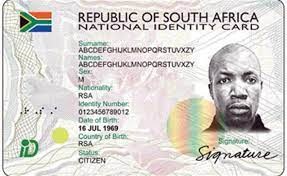
Passport: A passport holds immense importance for newcomers to South Africa, as it serves as their primary proof of identity and legal status in the country. Upon arrival, immigration authorities verify the passport to ensure that the individual’s entry is lawful and in compliance with the country’s immigration laws. It grants them access to South African territory and establishes their nationality and citizenship, facilitating interactions with government agencies, financial institutions, and employers. Additionally, a valid passport is a prerequisite for obtaining the necessary visas or permits required for specific purposes such as work, study, or residency.
https://www.passportindex.org/passport/south-africa/

Visa or Permit: The importance of obtaining a Visa or Permit when newcomers arrive in South Africa cannot be overstated. These documents are not just bureaucratic requirements but are essential for legal residency and compliance with South African immigration laws. They serve as the official authorization for individuals to enter, stay, and engage in various activities within the country, such as work, study, or family reunification. Visas and permits also ensure that newcomers have access to vital services, including healthcare, education, and social benefits, while maintaining the integrity of South Africa’s immigration system.
http://www.dha.gov.za/index.php/applying-for-sa-visa
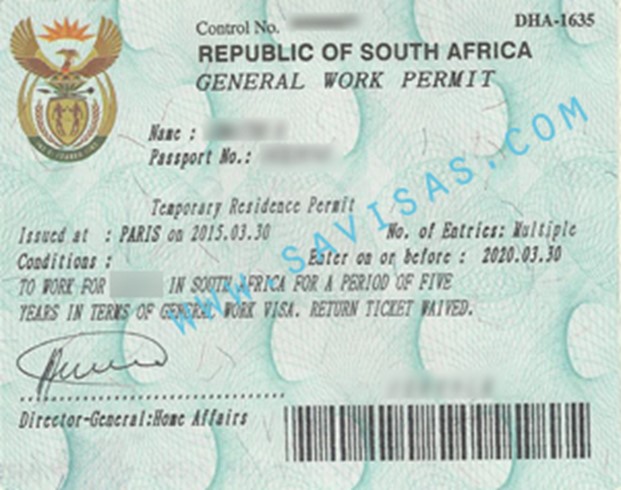
Work Contract or Offer Letter: The Work Contract or Offer Letter is of paramount importance for newcomers to South Africa, particularly those arriving for employment purposes. This document serves as a formal agreement between the prospective employee and the South African employer, outlining crucial details of the job, such as salary, job description, working conditions, and the duration of employment. It not only provides legal recognition of the individual’s employment status but also plays a pivotal role in the visa and immigration application process, as many work-related visas and permits require evidence of a valid job offer. Furthermore, the Work Contract or Offer Letter helps protect the rights of both the employer and employee by establishing clear expectations and terms of employment, fostering transparency, and preventing potential disputes.
https://labourguide.co.za/employment-condition/contract-of-employment-example/
Driving License: For newcomers to South Africa, obtaining a driving license is of paramount importance for various reasons. Firstly, it serves as a crucial form of identification within the country, making it easier to access various services and conduct daily activities such as opening a bank account, renting a home, or making purchases that require age verification. Secondly, having a South African driving license is essential for those who intend to drive in the country, as it is legally required to operate a motor vehicle. Driving without a valid license can result in fines, legal consequences, and even deportation for non-residents. Additionally, a South African driving license can significantly enhance one’s mobility and independence, allowing newcomers to explore the country more freely and seek employment opportunities that may require driving.
https://www.gov.za/services/services-residents/driving/driving-licence
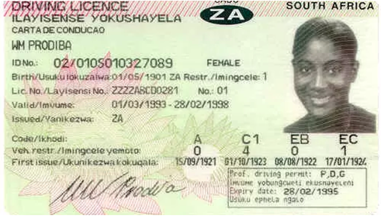
Asylum application: The asylum application holds profound significance for newcomers in South Africa seeking refuge and protection from persecution, violence, or other forms of harm in their home countries. It is a lifeline that can potentially secure safety, and security, and a chance to rebuild their lives in a stable environment. For these individuals, the asylum application process represents a legal pathway to access the fundamental rights and protections enshrined in international and South African law. It not only grants them the possibility of a haven but also ensures that they are shielded from deportation while their case is being assessed.
http://www.dha.gov.za/index.php/immigration-services/refugee-status-asylum

Please note that immigration regulations in South Africa can change, and the requirements can vary based on your nationality and specific circumstances. It is advisable to check with the South African Department of Home Affairs or consult with an immigration expert for the most up-to-date and accurate information tailored to your situation.
Understanding your finances
- Understanding your finances
- Know Your Employment Type
- Importance of paycheck
- Direct deposit
- Payroll taxes
- Tax returns
- Bank Cards
Understanding your finances
Understanding your finances is paramount for newcomers in South Africa as it enables them to navigate the unique financial landscape of the country effectively. South Africa’s diverse cost of living, economic fluctuations, and complex financial systems demand careful financial planning. With this knowledge, newcomers can create budgets, manage expenses, and make informed decisions about saving, investing, and managing debt. It also ensures compliance with tax regulations, aids in building a secure financial future, and promotes self-reliance. Overall, financial literacy is not just a tool for financial stability but also a key to achieving one’s goals and adapting successfully to life in South Africa.
Employment type: Understanding employment types in South Africa is crucial for newcomers as it directly impacts their job prospects, benefits, and legal rights. The country offers various employment arrangements, including permanent, fixed-term, and temporary contracts. Permanent employment provides job security and benefits like paid leave and retirement contributions, while fixed-term contracts have a defined end date and often fewer benefits.
Temporary work typically involves short-term engagements without the same job security or benefits as permanent positions. Moreover, understanding the distinction between full-time and part-time employment is important, as it affects working hours and entitlements. Newcomers must grasp these distinctions to make informed decisions about their career paths and negotiate fair employment terms by South African labor laws.
https://www.prospects.ac.uk/jobs-and-work-experience/working-abroad/work-in-south-africa
Paycheck: For newcomers in South Africa, a paycheck holds significant importance as it serves as a lifeline for financial stability and independence. It provides the means to cover essential expenses like housing, food, transportation, and healthcare, ensuring a basic standard of living.
A regular paycheck also enables newcomers to build financial security by saving for emergencies, investing for the future, and managing debt responsibly. Additionally, it empowers individuals to
contribute to the country’s economy and society, fostering a sense of belonging and self-sufficiency. Ultimately, a paycheck is the foundation upon which newcomers can establish themselves in a new country, pursue their goals, and work toward a prosperous future.
https://www.payspace.com/payroll-in-south-africa-what-you-need-to-know/
Direct Deposit: Direct deposit is of paramount importance for newcomers in South Africa due to its convenience, security, and efficiency in managing financial affairs. It allows individuals to receive their salaries, government benefits, or any other income directly into their bank accounts, eliminating the need for physical checks or cash transactions, which can be risky. For newcomers adapting to a new financial environment, direct deposit provides a reliable way to access funds promptly, ensuring that bills are paid on time and financial responsibilities are met efficiently.
Moreover, it promotes financial inclusion by encouraging the use of formal banking systems, which is essential for building credit history and accessing various financial services. Overall, direct deposit simplifies financial management, enhances security, and contributes to the financial stability of newcomers in South Africa.
https://www.bis.org/cpmi/paysys/southafrica.pdf
Payroll taxes: Understanding payroll taxes is of paramount importance for newcomers in South Africa as it directly affects their income and financial obligations. Payroll taxes in South Africa encompass various deductions, including income tax, unemployment insurance, and contributions to the country’s social security system. Having a clear grasp of these taxes ensures that newcomers can accurately calculate their take-home pay, budget effectively, and avoid unexpected financial burdens. Furthermore, compliance with payroll tax regulations is essential to avoid legal issues and penalties. By understanding payroll taxes, newcomers can optimize their financial planning, make informed employment decisions, and ensure their financial stability in their new South African life.
https://www.activpayroll.com/global-insights/south-africa
Tax returns: Understanding tax returns is crucial for newcomers in South Africa as it ensures compliance with the country’s tax laws and helps individuals optimize their financial affairs. South Africa has a complex tax system, and filing accurate tax returns is a legal obligation. By comprehending tax regulations, newcomers can minimize their tax liabilities, claim eligible deductions, and avoid penalties. Understanding the tax return process also empowers individuals to take advantage of tax incentives and benefits, such as rebates or credits, that may be available to them. Additionally, it promotes financial transparency and responsibility, contributing to a smooth integration into the South African financial system and preventing potential financial hardships that can result from non-compliance with tax obligations.
https://www.sars.gov.za/types-of-tax/personal-income-tax/
Bank Cards: Bank cards, such as debit and credit cards, hold significant importance for newcomers in South Africa. These cards are essential tools for managing finances and conducting day-to-day transactions. Debit cards are particularly crucial as they allow individuals to access their bank accounts and make purchases conveniently, eliminating the need for carrying cash.
They are widely accepted across South Africa, from shopping at stores to paying bills online. Credit cards, on the other hand, can be valuable for building a credit history, which is vital for accessing financial services like loans and mortgages. Understanding how to use and manage bank cards is fundamental for newcomers as it not only facilitates financial transactions but also contributes to their overall financial stability and integration into the South African financial system.
Credit Card: Credit cards can be valuable financial tools for newcomers in South Africa. They offer convenience and flexibility when making payments and can help build a positive credit history, which is crucial for accessing financial services like loans and mortgages in the country. Moreover, credit cards often come with various rewards and benefits, such as cashback, discounts, and travel perks, which can save you money in the long run. However, it’s essential to use credit cards responsibly by paying bills on time and managing spending to avoid accumulating high-interest debt. Overall, understanding how to use credit cards wisely is important for newcomers to establish a solid financial foundation and take advantage of the financial opportunities available in South Africa.
https://www.rateweb.co.za/credit-cards/best-credit-cards-in-south-africa/
Debit card: Debit cards are essential financial tools for newcomers in South Africa. These cards are linked to a bank account and allow users to make purchases and withdraw cash conveniently. For newcomers, debit cards offer a secure and efficient way to manage their day-to-day expenses, pay bills, and shop online, reducing the need for carrying cash. They also facilitate easy tracking of transactions through bank statements, aiding in budgeting and financial management. Moreover, many essential services and payments in South Africa, such as utilities and public transportation, are increasingly transitioning to digital platforms, making a debit card almost indispensable. Overall, a debit card simplifies financial transactions, enhances security, and promotes financial independence for newcomers in South Africa.
Transportation in South Africa
- Overview of the Transportation System in South Africa
- Transportation Modes
Overview of the Transportation System in South Africa
South Africa’s transportation system is a diverse and extensive network that encompasses various modes of travel, reflecting the country’s vast size and varying landscapes. The backbone of the system is the road network, with a comprehensive network of highways and roads connecting major cities and towns. South Africa also boasts a well-developed railway system, primarily used for freight transport but also offering passenger services. Major cities like Johannesburg, Cape Town, and Durban have international airports, facilitating domestic and international air travel.
Public transportation in urban areas includes buses, minibus taxis, and commuter rail services, although challenges related to safety, affordability, and efficiency persist. The country has made significant investments in recent years to upgrade and expand its transportation infrastructure, particularly in preparation for major events like the FIFA World Cup, aiming to improve connectivity, enhance tourism, and stimulate economic growth. However, issues such as traffic congestion, maintenance, and accessibility disparities between urban and rural areas remain ongoing challenges in South Africa’s transportation system.
Transportation Modes
Road transport forms the backbone of the country’s mobility, with an extensive network of highways and roads connecting major cities and rural areas. The railway system is crucial for freight transportation, and while it offers passenger services, they are often in need of modernization. The aviation sector is well-developed, with international airports in major cities, facilitating both domestic and international travel.
South Africa’s maritime transport, centered around its ports, is vital for imports and exports, given its extensive coastline. Public transportation within urban areas relies on buses, minibus taxis, and commuter trains, although these modes face challenges in terms of safety and efficiency. The country is also increasingly focusing on sustainable transportation modes like cycling and pedestrian infrastructure to promote eco-friendly and healthy mobility. This diverse mix of transportation modes reflects South Africa’s commitment to providing comprehensive mobility solutions for its citizens and its role as a regional transportation hub in Africa.
Air Transport: The country boasts a network of modern airports, with Johannesburg’s OR Tambo International Airport, Cape Town International Airport, and Durban’s King Shaka International Airport serving as major hubs. These airports not only facilitate domestic travel but also act as gateways to the African continent and the rest of the world. Air transport is essential for business and tourism, enabling rapid access to various regions of South Africa and supporting the nation’s export-import activities.
It plays a critical role in linking remote and underserved areas to major cities, helping to bridge geographical disparities and boost economic development. While air travel offers speed and convenience, it also faces challenges related to environmental sustainability and airport congestion, which require ongoing attention and innovative solutions in South Africa’s evolving transportation landscape.
The major airline companies in South Africa are:
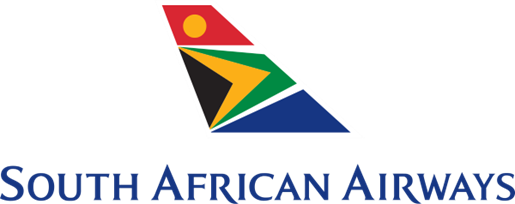
Rail Transport: The nation boasts an extensive and well-developed rail network that connects major cities, industrial centers, and ports. Notably, South Africa’s rail system is essential for the transportation of bulk commodities, such as minerals, coal, and iron ore, which are critical to the country’s economy. Passenger rail services also provide a reliable means of commuting for many South Africans, offering an alternative to road transport, particularly in urban areas.
Despite facing challenges related to maintenance, infrastructure upgrades, and safety concerns, rail transport remains an essential mode of transportation that contributes significantly to South Africa’s economic development and accessibility. Efforts to modernize and expand the rail network continue, aiming to enhance efficiency, sustainability, and connectivity in the nation’s transportation landscape.
The primary rail provider in South Africa is Transnet Freight Rail (TFR), which is a division of Transnet SOC Ltd. Transnet is the state-owned company responsible for freight logistics and rail transportation in South Africa. Transnet Freight Rail operates an extensive rail network that spans the country and is crucial for the transportation of various goods, including minerals, coal, iron ore, and general cargo.

Maritime Transport: South Africa’s transportation system, given its extensive coastline along the Indian and Atlantic Oceans. The country boasts a network of major ports, including Durban, Cape Town, and Port Elizabeth, which serve as crucial gateways for international trade and commerce. These ports facilitate the import and export of goods, such as minerals, agricultural products, and manufactured goods, making them essential for the nation’s economic activities.
South Africa’s maritime industry also supports the fishing and tourism sectors, with coastal towns and cities relying on ports for both economic livelihoods and leisure activities. While maritime transport offers significant opportunities, it also faces challenges related to environmental sustainability, port infrastructure development, and maritime safety and security, all of which require ongoing attention to ensure the efficient and responsible movement of goods and people through South Africa’s seafaring routes.
In South Africa, the state-owned company responsible for maritime transport and the operation of the major ports is Transnet National Ports Authority (TNPA). TNPA manages and maintains the country’s eight commercial seaports, which include major ports like Durban, Cape Town, Port Elizabeth, and Richards Bay, among others.
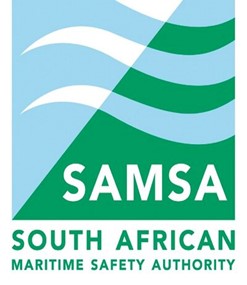
Public Transportation: This mode of transportation includes buses, commuter trains, and minibus taxis, offering an affordable and accessible means for daily commuting and reducing the burden of private car ownership. In some major cities like Johannesburg, Cape Town, and Pretoria, bus rapid transit (BRT) systems have been implemented to provide efficient and environmentally friendly public transportation options.
While public transport is crucial for alleviating congestion, reducing air pollution, and enhancing mobility for the general populace, it also faces challenges such as maintenance issues, overcrowding, and safety concerns. Nonetheless, South Africa continues to invest in the improvement and expansion of public transport networks to enhance the overall quality of life for its citizens and promote more sustainable urban transportation solutions.
Public transportation in South Africa includes:
- South African Rail Commuter Corporation (PRASA)
- Gautrain
- Bus Rapid Transit (BRT) Systems
- Municipal Bus Services
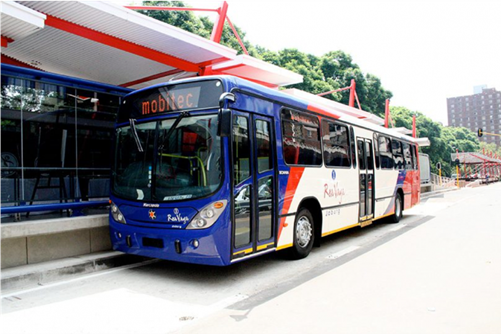
Ridesharing and Taxis: Ridesharing services like Uber have gained popularity in major cities such as Johannesburg, Cape Town, and Durban, offering passengers a user-friendly, app-based platform to request rides. Traditional metered taxis also operate widely, providing reliable transportation services across urban areas and airports. These modes of transport offer a crucial point-to-point solution, especially in areas where public transport may not be as readily available or convenient. However, the industry has faced challenges, including safety concerns and regulatory issues, which authorities are actively addressing to ensure passenger safety and fair competition within the transportation sector.
The famous ridesharing and taxi services are:

Health Care Insurance
- Health Care Insurance Coverage in South Africa for Newcomers
- Tourists, Students, and Foreign Workers
Health Care Insurance Coverage in South Africa for Newcomers
Healthcare insurance is a critical consideration for newcomers in South Africa. While the country has a public healthcare system, newcomers should have private health insurance, also known as medical aid. Private health insurance offers several advantages, including access to a broader network of healthcare providers, shorter wait times for medical services, and coverage for specialized treatments.
It provides peace of mind by ensuring that you and your family have access to quality healthcare when needed, and it can cover a range of medical expenses, including doctor’s visits, hospitalization, medications, and surgeries. Newcomers should carefully research and select a medical aid plan that suits their needs, budget, and anticipated healthcare requirements. Having proper healthcare insurance not only safeguards your health but also helps you navigate the South African healthcare system with confidence.
Here’s what newcomers should know about healthcare insurance:
Public vs. Private Healthcare: South Africa’s public healthcare system, while available to everyone, can be overburdened, leading to longer wait times and variable service quality. Private healthcare, on the other hand, offers faster access to medical services, specialist care, and a broader choice of healthcare providers.
Medical Aid Plans: Private health insurance in South Africa is typically offered through various medical aid schemes. These schemes provide coverage for a range of healthcare services, including hospitalization, doctor’s visits, medications, and surgeries.
Coverage Options: Medical aid plans come in various packages, offering different levels of coverage. It’s essential to choose a plan that suits your specific needs and budget. Plans may vary in terms of premiums, co-payments, and the extent of coverage.
Waiting Periods: Many medical aid schemes impose waiting periods for certain services or pre-existing conditions. Be sure to understand these waiting periods and their implications when choosing a plan.
Provider Networks: Different medical aid schemes have their networks of healthcare providers, including hospitals and doctors. Check if your preferred healthcare providers are included in the network of the plan you select.
Costs: Consider the monthly premium, co-payments, and any additional costs associated with your medical aid plan. These can vary significantly between schemes and plans.
Preventive Care: Some medical aid plans may offer benefits related to preventive care, such as vaccinations, screenings, and wellness programs. Assess whether these align with your healthcare needs.
Claims Process: Familiarize yourself with the claims process of your chosen medical aid scheme. Understanding how to submit claims and receive reimbursements is crucial.
Legal Requirements: Depending on your visa or residency status, you may be required to have medical aid as part of your legal obligations in South Africa.
Comparison Shopping: Before making a decision, compare different medical aid schemes and their plans to find the one that best suits your needs and circumstances.

Tourists, Students, and Foreign Workers
Healthcare options for tourists, students, and foreign workers in South Africa can vary depending on their specific status and needs:
Tourists: Tourists visiting South Africa are encouraged to have travel insurance that covers medical emergencies during their stay. While the country has public healthcare facilities, these may not always meet the standards expected by international travelers. Private healthcare facilities are more likely to provide high-quality care, but it’s essential to check that your insurance covers
private medical services.
Students: International students studying in South Africa are typically required to have comprehensive health insurance coverage. Many universities and educational institutions offer health insurance plans specifically tailored to students’ needs. These plans often cover medical expenses, hospitalization, and emergency services.
Foreign Workers: Foreign workers employed in South Africa may have access to employer-sponsored health insurance or medical aid schemes as part of their employment packages. Employers are legally obligated to provide certain benefits, including coverage for occupational injuries and diseases. Workers should verify their coverage and benefits with their employers to ensure comprehensive healthcare access.
Regardless of their status, individuals in South Africa should familiarize themselves with the healthcare system, emergency numbers, and local medical facilities. All newcomers should carry documentation of their insurance coverage and understand the terms and conditions of their policies to ensure access to medical services in case of illness or injury.

Dos and Don’ts
- Newcomer Dos
- Newcomer Don’ts
- Use of Emergency Service
- Professional Development
Newcomer Dos
As a newcomer in South Africa, embracing cultural diversity and local customs is key to fostering positive interactions and a harmonious experience. Dos for newcomers include respecting the multitude of cultures and traditions found in the country, being open to learning about various customs, and greeting people with warmth and courtesy. Learning a few basic phrases in one of South Africa’s 11 official languages can also demonstrate respect for local culture and facilitate communication.
Dressing modestly when visiting more conservative communities and using both hands for greetings are gestures of politeness. Additionally, tipping is customary, and it’s advisable to leave a gratuity of 10-15% in restaurants. South Africans are known for their hospitality, so reciprocating with a small gift when invited to someone’s home is appreciated. Ultimately, newcomers who approach South Africa with respect, curiosity, and an open heart are likely to find a welcoming and enriching experience in this culturally diverse nation.

Register with the Department of Home Affairs: It’s a legal requirement and an essential part of the immigration process. Upon arrival, individuals are required to visit a local Home Affairs office to register their presence in the country and, if applicable, to obtain necessary permits or visas. This registration process helps the South African government track and manage the immigration status of foreigners within its borders, ensuring compliance with immigration laws.
It also serves as an important step in acquiring a South African identification document (ID) or temporary resident permit, enabling newcomers to access various services and benefits, including banking, employment, and healthcare. Registering with the Department of Home Affairs demonstrates your commitment to complying with South African laws and helps facilitate a smooth transition to life in the country.
Open a South African Bank Account: Having a local bank account allows you to receive your salary, make payments, and manage your finances more efficiently. It also provides a secure way to store your funds and build a credit history in South Africa, which can be beneficial for various financial endeavors, such as applying for loans or credit cards. Additionally, local banking institutions offer a range of services, including Internet and mobile banking, that make it convenient to access and manage your money. To open an account, you’ll typically need proof of identity, proof of residence, and, in some cases, proof of income or employment. It’s advisable to research different banks and their account options to find the one that best suits your needs and to ensure a smooth transition to financial life in South Africa.
Register for Taxation: The South African Revenue Service (SARS) is responsible for collecting taxes, and compliance with tax regulations is a legal requirement. Registering for taxation involves obtaining a tax number and understanding your tax obligations, including income tax, value-added tax (VAT), and other relevant taxes. Your tax contributions help fund essential government services and infrastructure development in South Africa. Compliance with tax laws is not only a legal obligation but also essential for your financial well-being, as it ensures you don’t face penalties or legal issues. It’s advisable to keep accurate financial records and seek guidance from tax professionals or the SARS website to understand your specific tax responsibilities based on your income source and status in the country.
Get Proper Healthcare Coverage: While the country offers a mix of public and private healthcare services, having adequate health insurance or a medical aid scheme is crucial for ensuring access to quality healthcare. The South African healthcare system is diverse, and the quality of care can vary. Private health insurance or a medical aid plan can provide you with more options for healthcare providers, shorter wait times, and access to specialized medical treatments. It’s essential to research and select a healthcare plan that suits your needs and budget. Adequate healthcare coverage not only safeguards your health but also provides peace of mind, especially in emergencies or unforeseen medical situations. Additionally, maintaining good health is a requirement for certain visa and permit applications in South Africa, further underscoring the importance of proper healthcare coverage for newcomers.
Respect Local Laws and Customs: The country is rich in cultural diversity, with various traditions and practices observed by different communities. It’s essential to familiarize yourself with and adhere to South African laws and regulations, which are designed to maintain order and ensure the safety of all residents and visitors. Moreover, respecting local customs, including greeting people with politeness, dressing modestly in certain contexts, and honoring cultural traditions, not only fosters positive interactions but also demonstrates appreciation for the cultural tapestry of South Africa. By embracing and respecting these local norms, newcomers can create harmonious relationships, integrate into their communities, and contribute to the cultural diversity that makes South Africa such a vibrant and welcoming nation.
Newcomer Don’ts
There are several important “don’ts” to keep in mind to ensure a smooth transition and respectful integration into the local culture and society. Firstly, don’t overlook the importance of obtaining the necessary visas or permits, and don’t engage in any activities that could lead to immigration violations or legal issues. Additionally, don’t ignore local customs and traditions; it’s crucial to be respectful and sensitive to the cultural diversity in the country.
Don’t disregard safety precautions, especially in urban areas, and be cautious about displaying valuable items in public. Moreover, don’t engage in any illegal activities, including drug use or trafficking, which can lead to severe legal consequences. Lastly, don’t make assumptions about South African society; instead, be open-minded, willing to learn, and actively engage with the local community to foster positive relationships and understanding.
Don’t Overstay Your Visa: Overstaying your authorized period of stay is a violation of immigration regulations and can lead to serious consequences, including deportation, fines, and future difficulties with immigration authorities. It’s essential to thoroughly understand the terms and conditions of your visa or permit, including its duration and any possible extensions. If you need more time in South Africa, apply for an extension or a new visa before your current one expires to maintain legal status. By respecting visa and permit regulations, newcomers can avoid legal issues and ensure a positive and lawful stay in the country.
Don’t Work Without Proper Authorization: This means that if you’re in the country on a specific visa type, such as a tourist visa or student visa, you should refrain from engaging in any employment or business activities without obtaining the appropriate work permit or business visa. South Africa has strict regulations governing work and business activities for foreigners, and violations can lead to serious consequences, including deportation and future immigration bans. To work legally in the country, it’s essential to secure the correct permits or visas that align with your intended employment or business endeavors. Ensuring that you have the proper authorization not only keeps you in compliance with the law but also safeguards your legal status and prospects in South Africa.
Don’t Ignore Registration Requirements: This step is a legal obligation and a critical part of the immigration process. Failing to register with the appropriate authorities can result in complications, such as visa or permit lapses, which may lead to legal issues, fines, or deportation. Registration not only helps the government keep track of your presence in the country but also ensures that you have the necessary documentation, such as a South African identification document (ID) or temporary resident permits, to access various services and benefits. It’s imperative to prioritize this registration process upon arrival to demonstrate your commitment to complying with South African laws and to facilitate a smooth and lawful transition to your new life in the country.
Don’t Disregard Traffic Rules: The country has strict traffic laws and regulations in place to ensure road safety. Violating these rules, such as speeding, driving under the influence, not wearing seat belts, or using a mobile phone while driving, can result in fines, penalties, and legal consequences. South Africa has a diverse road network that includes highways, urban roads, and rural routes, so it’s crucial to be well-versed in the rules of the road. Additionally, traffic law enforcement is active, and violations are taken seriously. To avoid legal issues and ensure your safety and the safety of others, newcomers should always adhere to South Africa’s traffic regulations and exercise caution while driving.
Don’t Ignore Safety Precautions: While the country offers incredible natural beauty and vibrant cities, it’s essential to be aware of potential safety concerns, especially in certain urban areas. Avoid walking alone at night in unfamiliar or poorly lit areas, and be cautious about displaying valuable items openly. Petty crimes, such as pickpocketing or bag snatching, can occur, so it’s advisable to keep your belongings secure. It’s also a good practice to stay informed about local safety conditions and to follow any travel advisories or safety recommendations, particularly if you plan to explore less touristy areas. By staying vigilant and taking necessary safety precautions, newcomers can enjoy their time in South Africa while minimizing potential risks.
Use of Emergency Service
The country has a well-established emergency response system, and the nationwide emergency number to dial is 10111 for police assistance. For medical emergencies, such as accidents or sudden illnesses, dial 10177 to access emergency medical services (EMS). In life-threatening situations, particularly in urban areas, private ambulance services are also available and can be reached through dedicated emergency numbers or by calling 112.
South Africa has dedicated fire departments in various municipalities, and the emergency number for fires is typically 10111. It’s crucial to provide clear and concise information when calling emergency services, including your location and the nature of the emergency, to ensure a swift and appropriate response. Familiarizing yourself with these emergency numbers and procedures is vital for your safety and the safety of those around you when living in or visiting South Africa.
Medical Emergencies: Dialing 10177 connects individuals to the emergency medical services (EMS) hotline, which dispatches ambulances to the scene. These EMS teams are highly trained and equipped to handle various medical emergencies, from accidents and injuries to sudden illnesses. However, it’s essential to provide accurate information about the nature of the emergency and the precise location to ensure a swift response. South Africa also has a network of public and private hospitals and clinics, with well-established healthcare facilities in major cities. Private healthcare providers often offer excellent services, but it’s advisable to have health insurance or a medical aid plan to cover potential medical expenses. Being prepared for medical emergencies, knowing the local emergency number, and understanding the healthcare options in your area can make all the difference when facing unexpected health crises in South Africa.
Police Assistance: This service connects individuals to the South African Police Service (SAPS) when immediate police intervention is required. Whether you need to report a crime, accident, suspicious activity, or any situation that necessitates police involvement, dialing 10111 will connect you to trained operators who can dispatch officers to your location. When seeking police assistance, it’s crucial to provide accurate and detailed information about the incident, your location, and any relevant circumstances. South Africa’s law enforcement agencies are responsible for maintaining public safety and order, and they play a vital role in addressing a wide range of situations, from criminal activities to accidents and emergencies.
Fire Emergencies: It’s essential to provide clear information about the nature and location of the fire. South Africa has dedicated fire departments in various municipalities equipped to handle fires of all types and sizes. These skilled firefighters work diligently to contain and extinguish fires, safeguarding lives and property. Additionally, the country has a network of volunteer and private firefighting organizations that support efforts to combat wildfires, which can be a significant concern, especially in the drier regions. Quick reporting and cooperation with emergency responders are essential in managing fire emergencies and minimizing their impact.
Professional Development:
Professional development in South Africa is a vital component of career growth and personal advancement. The country offers a range of opportunities and resources to help individuals enhance their skills and knowledge throughout their careers. This includes formal education and degree programs offered by universities and technical colleges, as well as professional certifications and workshops. South Africa’s workforce development initiatives aim to address the country’s economic and skills development needs, making it essential for professionals to continuously update their skills to remain competitive. Additionally, mentorship and networking play essential roles in professional development, providing opportunities to learn from experienced individuals and build valuable connections within various industries. South Africa’s dynamic and evolving job market makes ongoing professional development a necessity for staying relevant and achieving career goals.

Benefits of Professional Development: Professional development in South Africa offers several significant benefits to individuals, organizations, and the country’s economy as a whole:
Enhanced Skills and Knowledge: Professional development programs enable individuals to acquire new skills and knowledge, keeping them up-to-date with industry trends and best practices. This leads to improved job performance and increased employability.
Career Advancement: Developing new skills and obtaining additional qualifications can open up career advancement opportunities. It may lead to promotions, salary increases, and access to higher-level positions.
Increased Productivity: Well-trained and skilled professionals tend to be more productive in their roles, contributing positively to their organizations. Increased productivity can lead to higher profits and economic growth.
Innovation and Creativity: Professional development encourages innovative thinking and creativity. Employees who continuously learn and adapt are more likely to come up with new ideas and solutions.
Global Competitiveness: As South Africa’s economy becomes more globally connected, individuals with internationally recognized skills and qualifications are better positioned to compete in the global job market.
Compliance and Quality Assurance: Many industries require professionals to meet specific standards and regulations. Professional development ensures compliance with industry standards and helps maintain the quality of products and services.
Employee Satisfaction: Organizations that invest in their employees’ professional development demonstrate a commitment to their growth and well-being, which can lead to higher job satisfaction and employee retention.
Economic Growth: A skilled and educated workforce contributes to economic growth by attracting foreign investments and fostering innovation, which ultimately benefits the entire country.
Addressing Skills Gaps: South Africa faces skills shortages in various sectors. Professional development programs help bridge these gaps by providing individuals with the skills needed in the job market.
Social Mobility: Professional development can be a pathway for individuals from disadvantaged backgrounds to improve their socioeconomic status and access better job opportunities.
Overall, professional development is essential for personal growth, career advancement, and the economic development of South Africa. It helps individuals reach their full potential while contributing to the competitiveness and prosperity of the nation.
Ways to Pursue Professional Development: Pursuing professional development is essential for career growth and staying competitive in today’s rapidly evolving job market. Here are several effective ways to pursue professional development:
Formal Education: Enroll in degree programs, diploma courses, or certification programs related to your field. Universities, colleges, and online platforms offer a wide range of courses and degrees.
Online Learning: Take advantage of online courses and resources. Platforms like Coursera, edX, LinkedIn Learning, and Udemy offer courses on various subjects, allowing you to learn at your own pace.
Attend Workshops and Seminars: Participate in workshops, seminars, and conferences in your industry. These events often provide opportunities to learn from experts, network with peers, and stay updated on industry trends.
On-the-Job Training: Seek out training opportunities within your current job. Many employers offer in-house training, mentorship programs, or cross-training to help employees develop new skills.
Professional Associations: Join industry-specific professional associations. These organizations often provide access to resources, networking events, and certification programs.
Networking: Attend networking events, both in-person and online, to connect with professionals in your field. Building a professional network can lead to learning opportunities and career growth.
Read Industry Publications: Stay informed about industry news and trends by regularly reading trade publications, journals, and industry-specific websites.
Mentorship: Seek out a mentor in your field who can provide guidance, share their experiences, and offer valuable insights.
Peer Learning: Collaborate with colleagues and peers on projects, share knowledge, and learn from each other’s experiences.
Volunteer: Consider volunteering for projects or initiatives related to your career goals. Volunteering can provide valuable hands-on experience and expand your skill set.
Online Communities: Join online forums, discussion groups, and professional social media networks where you can engage in discussions, ask questions, and share knowledge with others in your industry.
Self-Study: Take the initiative to research and learn independently. Books, online resources, and educational videos can be valuable sources of information.
Set Goals: Define your professional development goals and create a plan to achieve them. Setting clear objectives helps you stay focused and motivated.
Continuous Learning: Embrace a mindset of continuous learning. Stay curious, open to new ideas, and willing to adapt to change.
Seek Feedback: Request feedback from supervisors, colleagues, or mentors to identify areas for improvement and growth.
Professional Development Budget: If possible, allocate a portion of your budget or request funding from your employer for professional development activities
.
Cross-Functional Experience: Seek opportunities to work on projects or in roles that expand your skillset and provide exposure to different aspects of your field.
